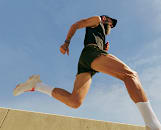
nensuria / iStock / Getty Images Plus via Getty Images
Yep, You Need Protein After an Endurance Run—Here’s How Much to Aim For
Adding protein to your post-run snack or meal is key for helping muscles recover after all those miles.
By Jennifer Heimlich•
The Importance of Protein After an Endurance Run
How Much Protein Should You Eat After Endurance Running?
Does Protein Timing Matter After an Endurance Run?
Best Protein Sources to Eat After an Endurance Run
What Else to Consider After an Endurance Run
You’ve finished your miles, done your post-run stretches, and chugged the glass of cold water that you’ve been dreaming about for the past half hour. But there’s one more step before your run is officially behind you: eating a recovery meal or snack with protein.
Discover more ways to reach your goals with Peloton
That’s right: Getting adequate protein is crucial not only after weight lifting, but also after an endurance run—you know, not a track workout, but a continuous, sustained-effort run where the goal is to work on your endurance. But exactly how much protein do you need after endurance running?
We spoke with dietitians who specialize in running to break down why you need protein after an endurance run, how much you’ll want to aim for, and everything else to keep in mind as you reach for that all-important recovery snack.
The Importance of Protein After an Endurance Run
Protein may be a hot topic these days, but it’s much more than a social media trend. “Protein is having a moment, so people start to roll their eyes,” says registered dietitian Serena Marie, RD. “But it’s being encouraged for a reason.” Protein forms the building blocks of your muscles, and several lifestyle factors, such as exercise, can increase your protein needs.
We mostly hear about how important protein is for fueling strength training workouts—which makes sense, given that that type of training is all about breaking down and rebuilding muscle back stronger. But generally, sports dietitians recommend eating protein after any kind of tough workout, including endurance runs. “In endurance exercise like running, the main fuel sources are going to be carbs and fat,” says registered dietitian Courtney Smith, RD. “But there is still some protein breakdown, especially as we get into longer endurance.”
Eating protein after an endurance run can help boost recovery since it’s used to repair the micro-damage inflicted by your miles. “Our muscles, ligaments, tendons, all of that needs protein,” Smith says. If you regularly go for runs day after day without taking in enough protein afterward, those tissues may not get what they need to recover.
Protein can also curb what runners like to call “runger,” or those insatiable cravings for food that can hit a few hours after a run if you haven’t refueled properly. “Our body is very smart, and it’s essentially trying to make up for those calories burned by increasing ghrelin, the hunger hormone,” Marie says. But protein will help keep us satisfied for longer because it takes a while to digest, and it helps even out our blood sugar levels so our hunger stays in check.
How Much Protein Should You Eat After Endurance Running?
Marie generally recommends aiming for about 20-plus grams of protein post-run. This is, broadly speaking, how much protein our bodies need after endurance running to effectively optimize muscle protein synthesis, which, she explains, essentially amps up our body’s ability to build new muscle.
If you want to calculate your personal post-run protein goal a little more precisely, Smith suggests targeting 0.3 grams of protein per kilogram of body weight. (To calculate your approximate weight in kilograms, divide your weight in pounds by 2.2.) So while a 150-pound person would aim for about 20 grams of protein, someone living in a lighter body might be OK with a little less and someone living in a larger body might need more.
It’s also important to consider your overall protein needs for the day, Marie says. The International Society of Sports Nutrition (ISSN) recommends that active people eat 1.4–2 grams of protein per kilogram of body weight every day. Those who are older, pregnant, or breastfeeding may need even more. “You might say to yourself, ‘You know, instead of just hitting 20 grams right now, let me get 40 grams so I can make a bigger dent into that amount that I need for the day,” she says.
Does Protein Timing Matter After an Endurance Run?
The current science is a little murky about just how important your post-workout fuel timing actually is. For years, experts thought there was a fairly short “anabolic window” when your body was extra-primed to absorb and use protein (and carbohydrates) after exercise. Now, scientists believe these beneficial effects can last for up to 24 hours, even though they taper off the longer you wait.
Still, most experts say it can’t hurt to get nutrients in fairly quickly. The ISSN says that eating protein within a couple hours of your workout can boost muscle protein synthesis. “I tend to say that if you’re going to be eating within two hours, you’re probably OK,” Marie says. “But if you’re doing a long run, I would encourage you to try to get that protein in within 30 minutes.”
Smith tells her clients to simply think of protein as the finale of their run. “Your workout is not done until you’ve recovered, and that means having your recovery meal or snack,” she says.
Sometimes, however, that’s easier said than done: Lots of runners have no appetite after a tough workout. But waiting too long can actually make you feel worse or get nauseous, Smith says. “A lot of times with nutrition, we talk about intuitive eating—eating when you’re hungry. But with sports nutrition—pre-exercise, during exercise, and post-exercise—we have to eat regardless,” she says. If you’re really not hungry after your run but want to refuel sooner rather than later, consider starting with a liquid fuel source such as a smoothie, sports drink, fruit juice, chocolate milk, or broth, which should go down easier.
Best Protein Sources to Eat After an Endurance Run
So what should your post-run protein look like? Here are some of the highest-quality protein sources to consider eating after endurance running, recommended by Marie and Smith.
1. Cottage Cheese
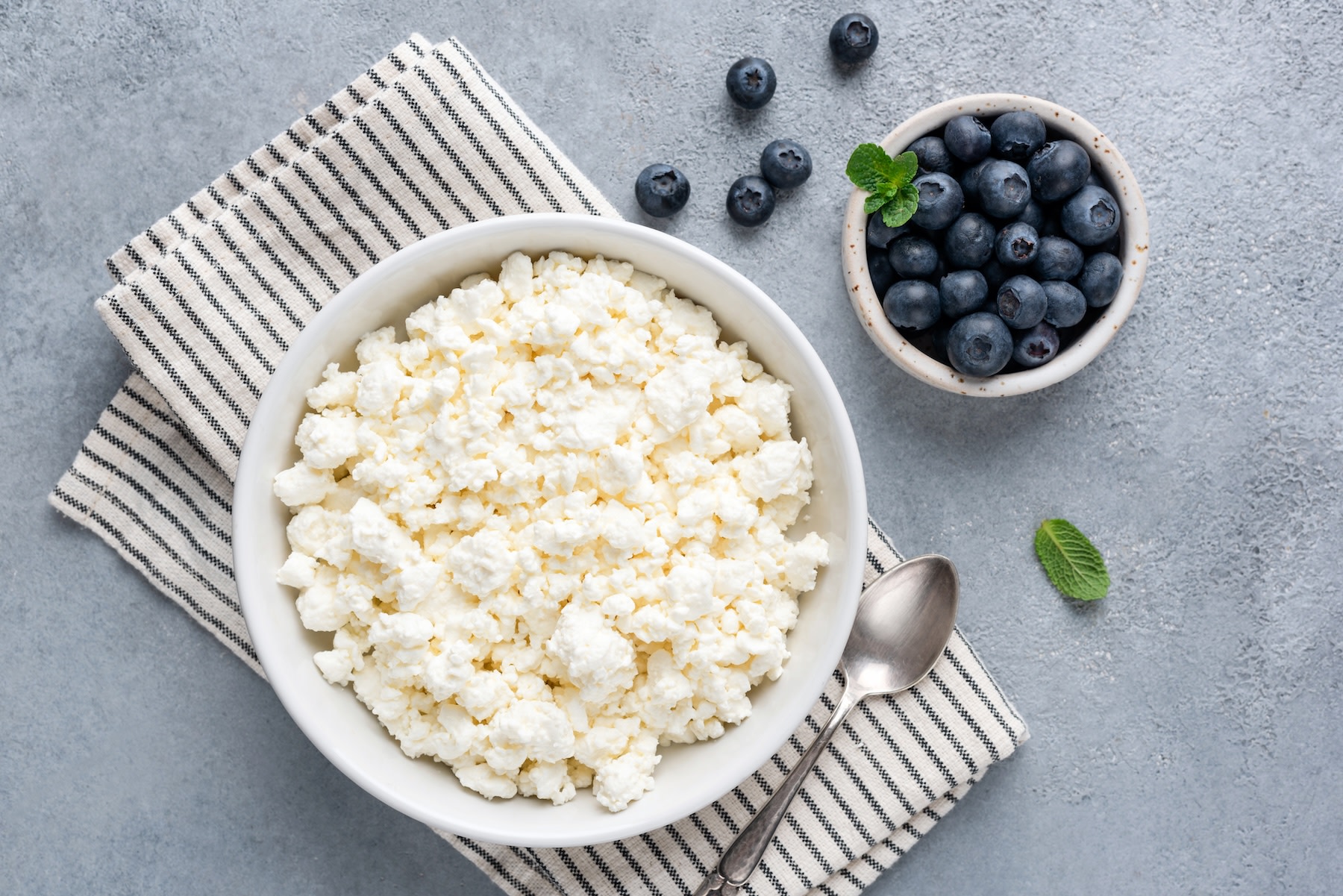
Arx0nt / Moment via Getty Images
Protein per 1 cup: 25 grams
A cup of cottage cheese can be all you need to hit that post-run protein target. The main protein in this classic snack is casein, but it also includes whey, which Marie says can be particularly helpful for warding off hunger after a tough run. If you don’t enjoy eating cottage cheese straight, you can add it to oatmeal or a smoothie.
2. Greek Yogurt
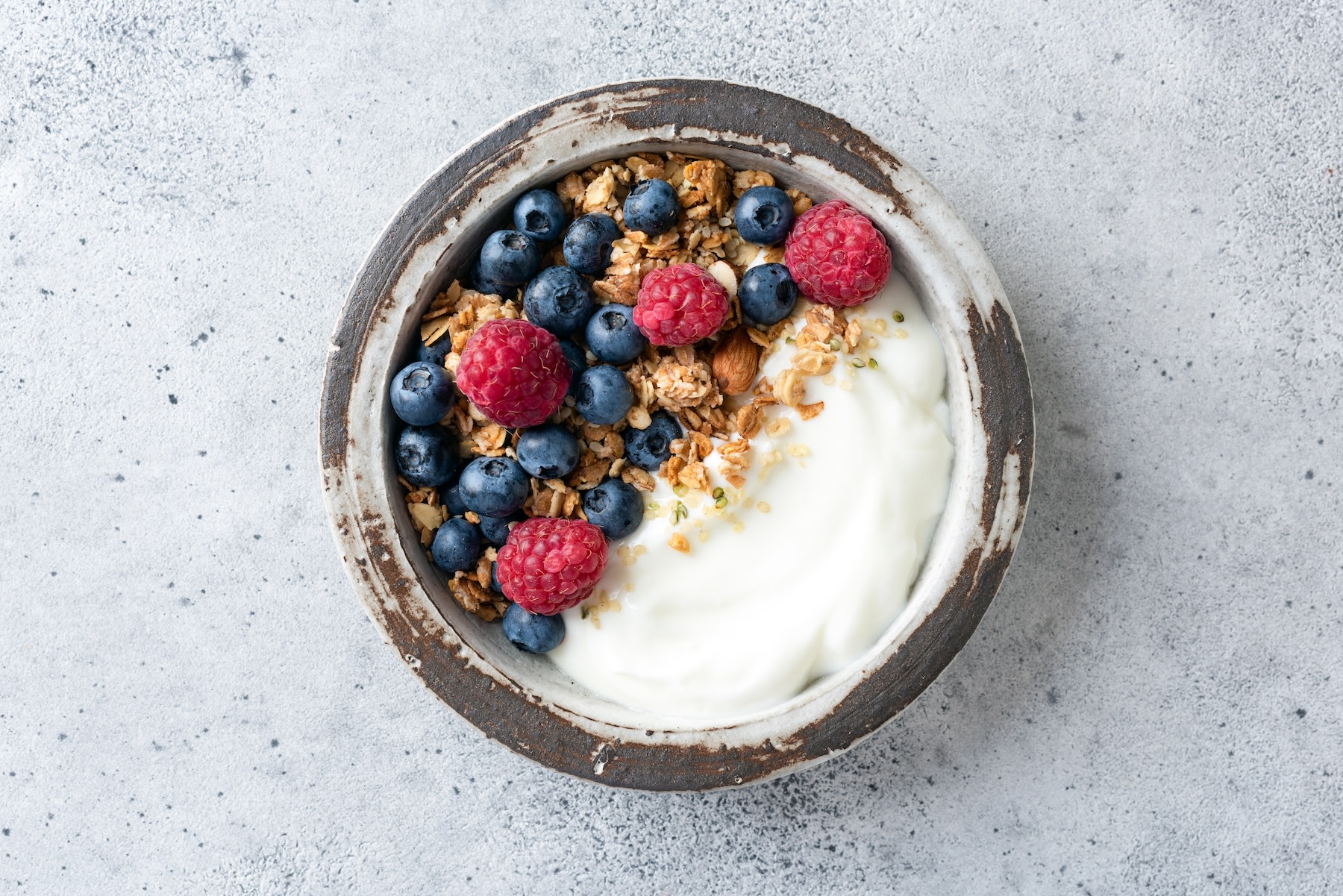
Arx0nt / Moment via Getty Images
Protein per 1 cup: 24.4 grams
Greek yogurt is another solid source of casein and whey protein, Marie says. It can easily be dressed up with berries and nuts, or also thrown in a smoothie. “I’m a big fan of cottage cheese and Greek yogurt because they're just so easy,” Smith says.
3. Edamame

PamelaJoeMcFarlane / E+ via Getty Images
Protein per 1 cup: 18.4 grams
Squeezing in all your protein can be a little tricky for vegans, but edamame is a complete plant-based source that Marie recommends. A serving gives you a solid dose of fiber, as well as vitamin K for strong bones and more than 100 percent of your daily dose of folate, which helps with red blood cell formation. You can buy it in the frozen vegetable section of most grocery stores, then microwave some up with a pinch of salt.
4. Lentils
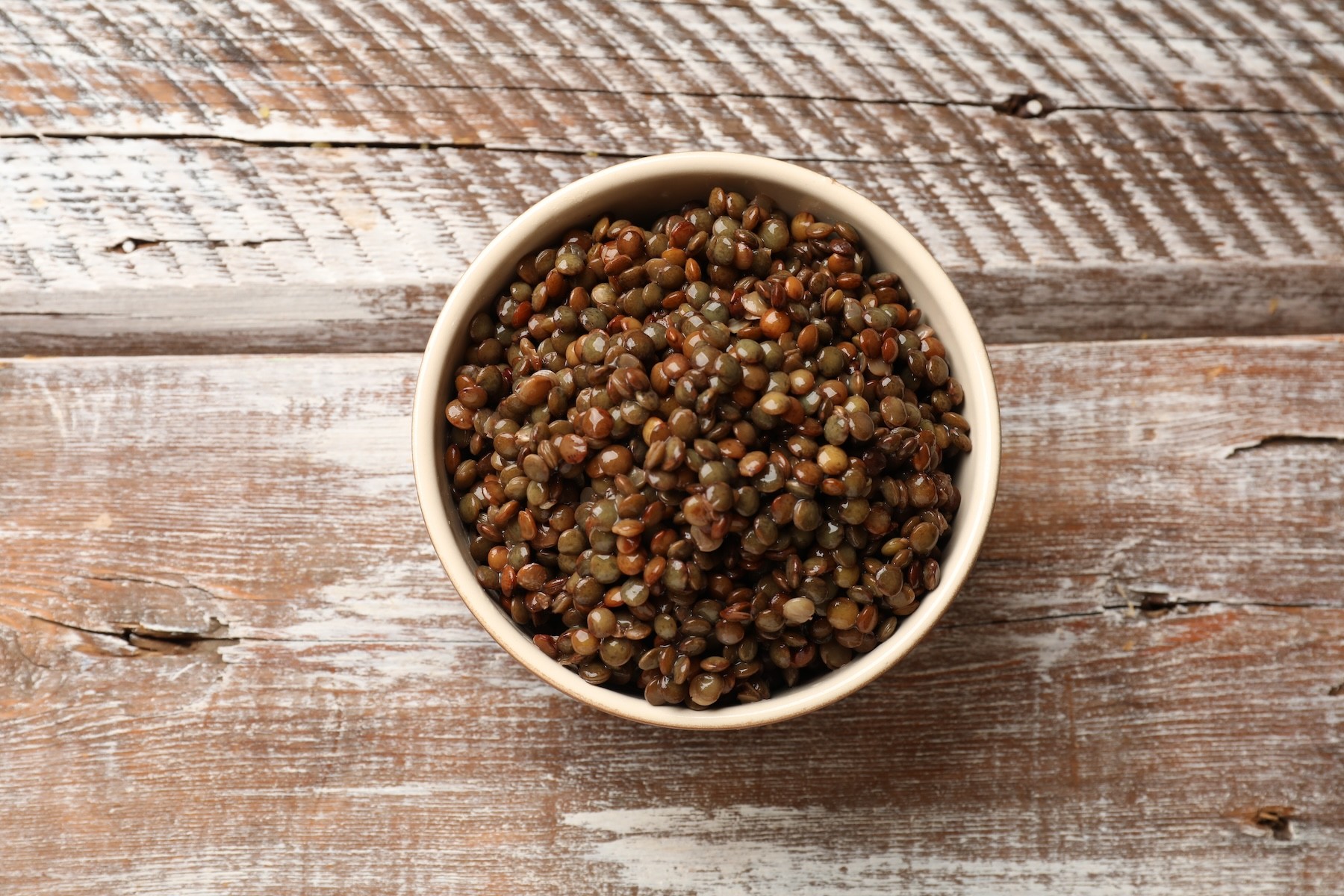
Liudmila Chernetska / iStock / Getty Images Plus via Getty Images
Protein per 1 cup: 17.9 grams
Lentils are another vegan-friendly protein source that make the top of Marie’s list. You can mix in some quinoa (8 grams of protein per cup) or tofu (6 grams of protein per 2 ounces) to hit your full post-run protein target. Bonus: Lentils are known for having anti-inflammatory effects that could potentially help you bounce back from the wear-and-tear of your workouts.
5. Fish

Olga Mazyarkina / iStock / Getty Images Plus via Getty Images
Protein per 3 ounces: 15.6 grams (will vary by variety)
In addition to giving you plenty of protein, fish will also deliver some heart-healthy fatty acids (though the exact amount of omega-3s will vary based on the type of fish you’re eating). A couple easy ways to add fish to your post-run rotation is with smoked salmon or packets of tuna, Smith says. Though, if you’ve got time to cook a filet, she says haddock is a great source of leucine, “an amino acid that has been shown to be really beneficial for endurance.”
6. Eggs
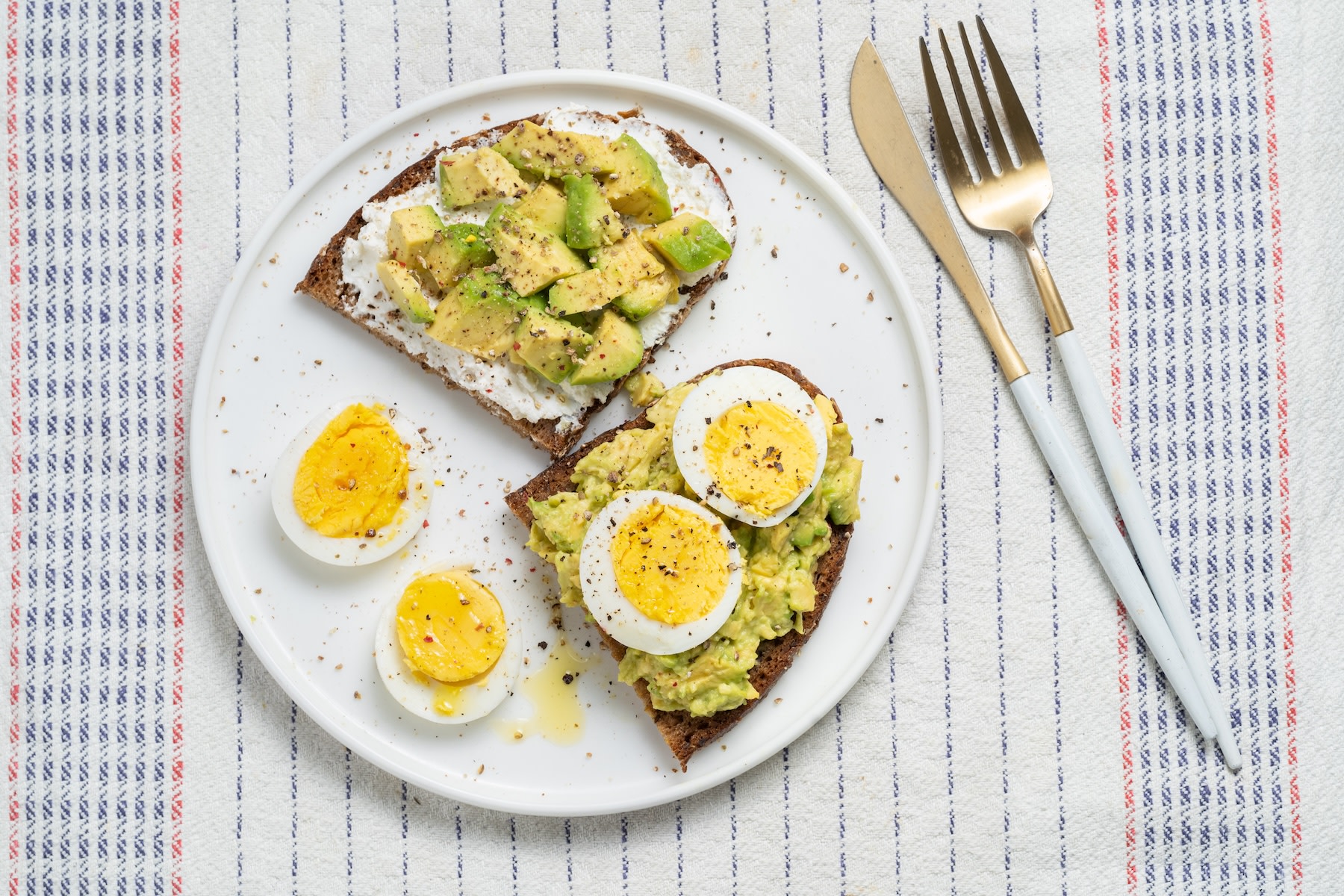
Carlo A / Moment via Getty Images
Protein per 2 large eggs: 12.5 grams
Eggs are a particularly great source of protein for runners because they are high in endurance-boosting leucine, Smith says. She recommends keeping hard-boiled eggs in your fridge so they’re ready to munch on post-run. Just add something like cheese or chia seeds for extra protein.
7. Sliced Turkey Breast
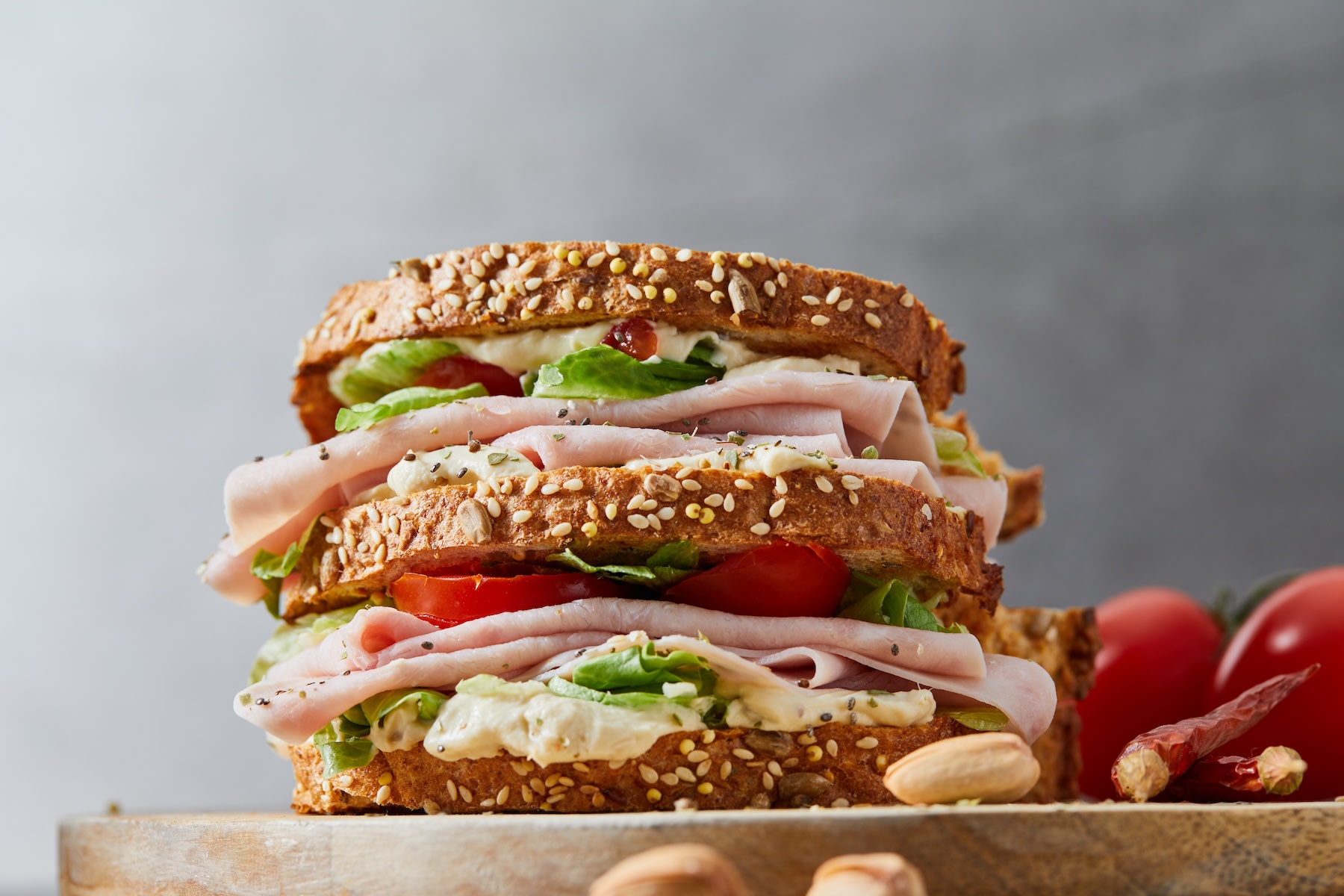
Marko Jan / E+ via Getty Images
Protein per 5 slices: 11.9 grams
The same deli meat your mom used for your school lunches makes for great post-run fuel, Smith says. Add a slice or two of cheese like provolone for extra protein, and stick them both between whole-wheat bread with some lettuce and tomato for a healthy meal that’s easy to pack on-the-go.
What Else to Consider After an Endurance Run
Protein isn’t the only thing you need after an endurance run. You also want to replenish the carbohydrates you just used up, since stored carbs in our muscles and liver are runners’ main source of fuel, Smith says. “Carbohydrates are also going to spike insulin and help to get that repair process going,” Marie adds. So add some whole grains, fruits, or veggies to whatever protein source you choose for a well-rounded recovery meal or snack.
Remember, too, that eating enough food after an endurance run is key. That’s because refueling properly is important for encouraging a healthy metabolism, balanced hormones, effective repair and recovery, and efficient adaptations to the workout you did, Marie says. Eating enough food—including enough protein—post-run will help you do that.
Related Articles

Nutrition
What to Eat Before a Run, According to Dietitians Who Specialize In It

Cardio
Endurance Training Isn’t Just for Pro Athletes—Here Are 5 Ways to Get Started

Nutrition
Want to Eat More Protein? Don’t Sleep On These 10 High-Protein Snacks Loved by Dietitians

Nutrition
What to Eat After a Run, According to Sports Dietitians
This content is for informational and educational purposes only and does not constitute individualized advice. It is not intended to replace professional medical evaluation, diagnosis, or treatment. Seek the advice of your physician for questions you may have regarding your health or a medical condition. If you are having a medical emergency, call your physician or 911 immediately.
Get our latest health stories straight to your inbox
Enter your email to get articles, expert-backed tips, and updates from Peloton sent to your inbox.
By providing your email address, you agree to receive marketing communications from Peloton.
For more about how we use your information, see our Privacy Policy.

